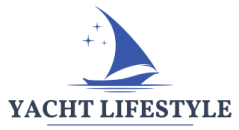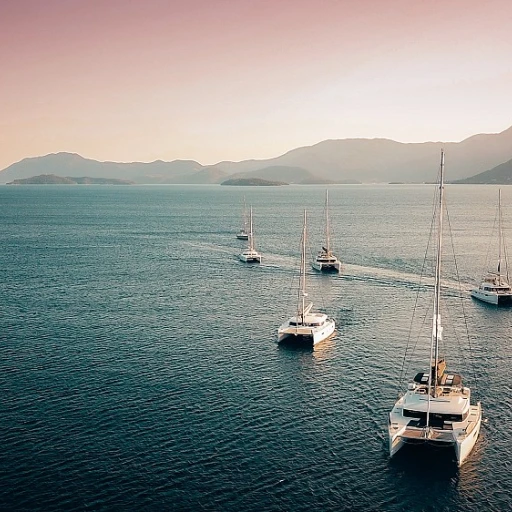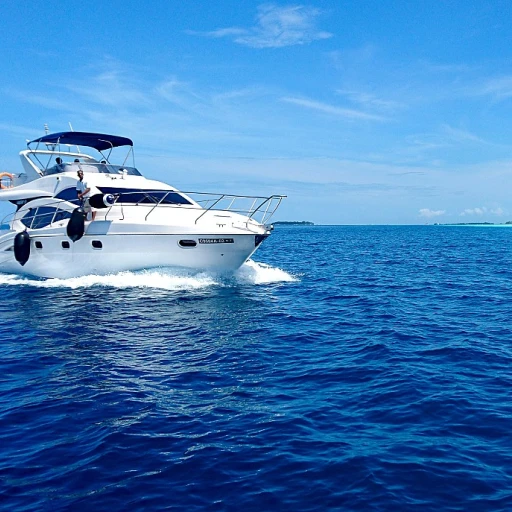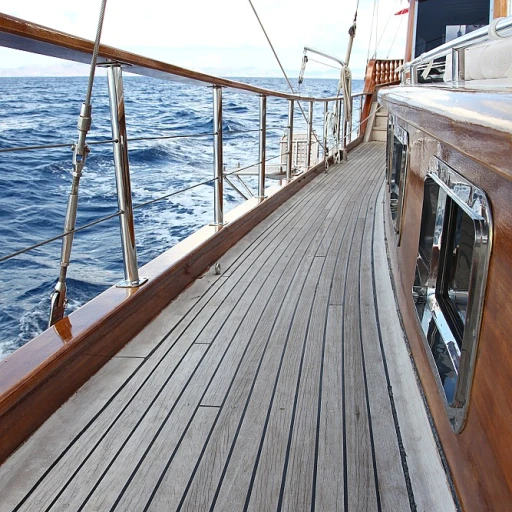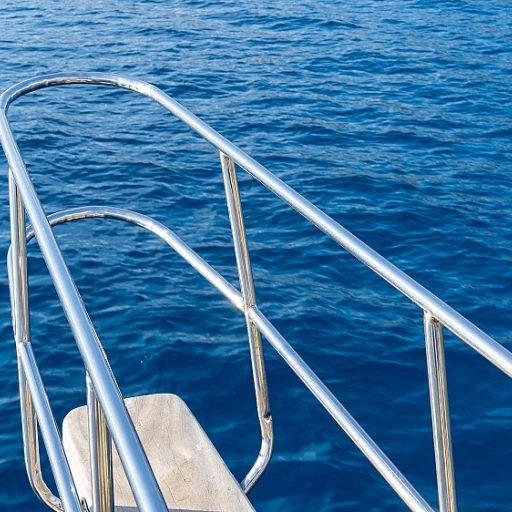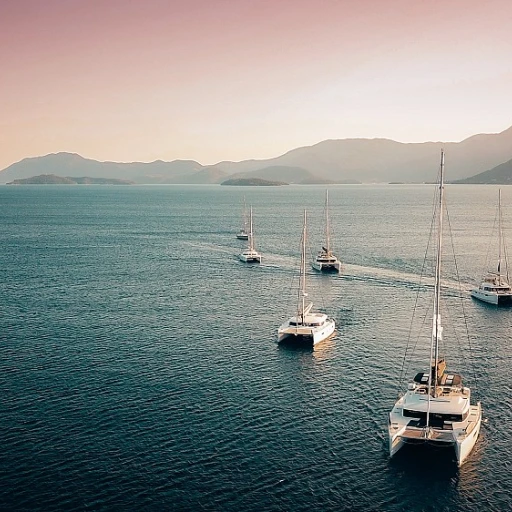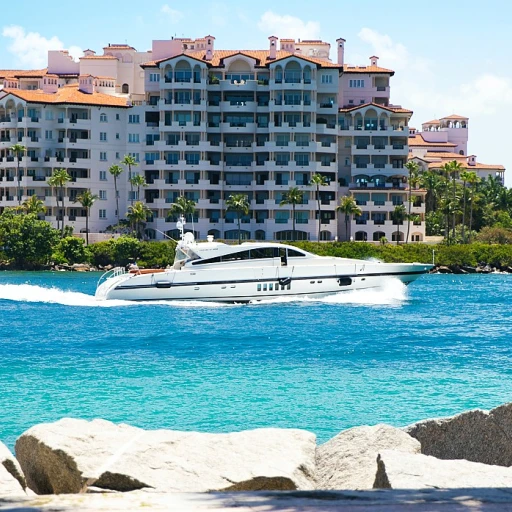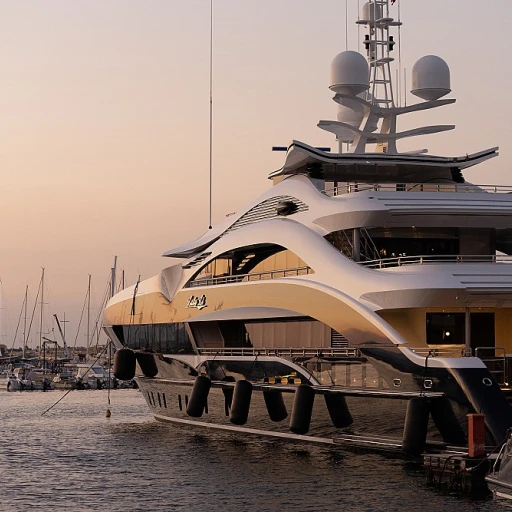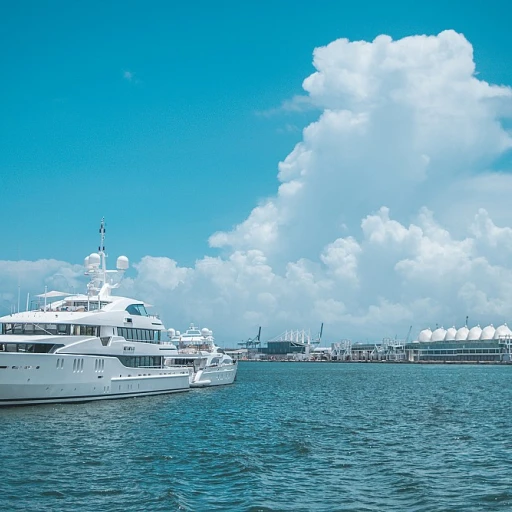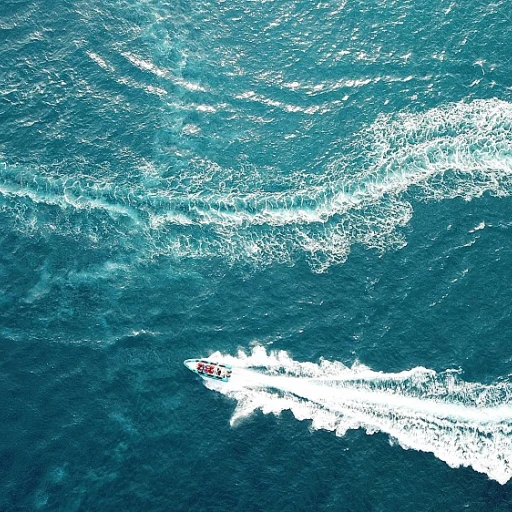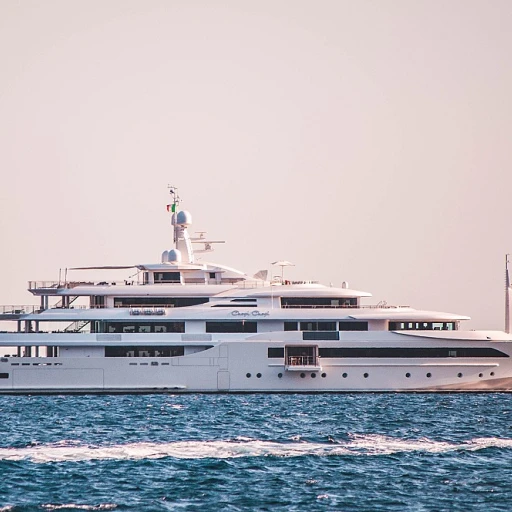-large-teaser.webp)
Regional Variations in Yachting Seasons
Navigating Regional Nuances: Yachting Seasons Explained
The yachting industry, like many other sectors, experiences variations in its seasonality due to regional differences. With the peak season differing from one destination to another, it's crucial for yacht enthusiasts to understand these nuances, ensuring they have the best possible yacht charter experience. Here's a closer look at how these regional variations impact the yachting seasons.
In the Caribbean, the high season for yacht charters typically aligns with the winter months, starting in November and running through April. During this time, the weather conditions are optimal, offering warm temperatures and gentle breezes, making it the best time of year for cruising through these tropical waters. The summer season, however, marks the advent of the hurricane season, leading to decreased yacht charter activity due to increased weather risks.
On the other hand, the Mediterranean region thrives in the summer season. The peak season in Mediterranean yachting destinations usually spans from May to October. This period is favored by yachting professionals for its calm seas and pleasant weather conditions, making it the perfect time for sailing enthusiasts to enjoy the luxurious Mediterranean waters.
Each region’s unique climate and weather patterns not only influence the timing of yacht charters but also impact the corresponding economic factors and technological advances in the yachting industry. These aspects play a pivotal role in how yachting seasons are perceived and managed globally. For those considering a long yacht expedition, understanding these regional yachting trends can provide a competitive edge, maximizing enjoyment and safety at sea.
Interestingly, the concept of shoulder seasons has emerged as a way to enjoy prime yachting destinations without the influx of tourists. These periods at the fringes of the high season offer favorable weather with the added benefit of a less crowded sailing experience. In regions like the Caribbean, this can mean a memorable yacht season without the intense bustle. Exploring premium boating accessories can further elevate this unique experience.
Climate and Weather Impact
Influence of Climate and Weather Conditions on Yachting Seasons
Understanding the yachting season demands an appreciation of weather conditions and their impact on various destinations. Both the Mediterranean and the Caribbean, popular yacht charter destinations, offer distinct experiences contingent on the time of year you decide to set sail. In the Mediterranean, the summer months are favored for yachting, spanning from May to end of September, as this is the peak season. During these months, you'll find warm temperatures, calmer seas, and bustling ports, ideal for luxury summer charters. However, the shoulder season, extending from April to May and late September to October, can also offer delightful experiences with milder weather and fewer crowds. Conversely, the Caribbean heats up during the northern hemisphere's winter months, making it the best time for a winter charter. From December to April, the Caribbean's consistent trade winds and warm weather invite yacht enthusiasts, ensuring a vibrant yachting season. Here, winter charters capitalize on the region's peak season, offering an escape from colder climates to idyllic tropical waters. Weather conditions not only define the best time for yacht charters but also necessitate thorough preparation by yacht crews. It's essential for crews to stay informed about regional weather trends to ensure smooth sailing. Detailed weather forecasts and real-time updates guide the decision-making process for optimal route planning and safety onboard. For those planning longer yacht excursions, winter sailing in regions traditionally less trafficked by summer yacht charters can offer unique experiences. Careful consideration of climate patterns and the shifting high seasons will help you choose the ideal charter season to align with your desires. Of course, if you're looking to enhance your yachting season, exploring equipment options like the perfect grill can be a noteworthy consideration for those leisurely days spent anchored in serene bays. Enhancing your pontoon experience with quality accessories ensures an unforgettable yachting lifestyle.Economic Factors and Market Trends
The Impact of Economic Trends on Yacht Charter Seasons
The ebb and flow of economic trends significantly impact the yachting season and the yacht charter industry. Understanding these influences can help yacht owners and charter companies make informed decisions for peak and shoulder seasons. During prosperous economic periods, there is typically increased demand for luxury experiences, including yacht charters. This demand can lead to a bustling summer charter season in popular destinations such as the Mediterranean and the Caribbean. In contrast, during economic downturns, the charter season might see a decline in bookings. Furthermore, fluctuating exchange rates can influence charter bookings. For instance, a favorable exchange rate might make a particular yachting destination more attractive to international travelers, thereby extending the high season. Recent years have also seen a rise in fractional yacht ownership and yacht share programs. These innovations allow more people to access yachts, increasing charter engagements throughout the year. Veteran yacht crews are essential in adapting to these economic shifts, ensuring high service standards regardless of the economic climate. Considering these economic factors and anticipating potential changes can provide significant advantages to those operating within the yacht season marketplace. Aligning charter prices with economic conditions can lead to optimal booking rates, ensuring profitability and sustainability. For a firsthand account of the challenges faced by those working closely with yachts, you can explore the experiences of a superyacht stewardess.Technological Advances and Their Role
Innovative Technologies Shaping Yachting Seasons
The yachting industry continually evolves, particularly through technological advancements that reshape how we approach yachting throughout the year. The integration of these technologies directly influences yacht charters and the duration of the yachting season in various destinations.- Advanced Weather Prediction Tools: One of the essential elements in the planning of yacht charters and the extension of yachting seasons is reliable weather forecasting. Today’s sophisticated predictive models allow yacht owners and charter companies to better anticipate weather conditions in the Caribbean, Mediterranean, and other popular yachting regions. This enables them to plan charters outside traditional high seasons, potentially expanding both summer and winter charter opportunities into months previously avoided due to uncertain weather.
- Fuel Efficiency and Environmental Impact: Technological developments in yacht design and propulsion systems have significantly improved fuel efficiency. These advancements are key in reducing operational costs and the environmental footprint of yachts. As a result, there’s greater flexibility in planning excursions across different time periods and destinations. Innovations in sustainable technology also align with environmental considerations pivotal in determining when and where yachts can be chartered responsibly.
- Self-Sufficient Systems: With innovations such as solar panels and improved energy storage, yachts can now operate more independently. This autonomy can extend the yachting season by allowing for longer voyages without the need for frequent refueling or port stops.
- Enhanced Comfort and Connectivity: Modern yachts are equipped with cutting-edge comfort features that make passengers feel at home regardless of the weather outside. In addition, improved communication and connectivity technologies ensure that staying connected is seamless, whether navigating through a summer charter in the Mediterranean or embarking on a winter charter.
Environmental Considerations
The Ecological Perspective: Sailing Towards Sustainability
The yachting season is not only shaped by climate conditions and economic factors but is increasingly influenced by environmental considerations. Both the Mediterranean and Caribbean destinations experience high volumes of yacht traffic during their peak seasons. This influx can put a substantial strain on delicate marine ecosystems, leading to environmental degradation. Addressing these concerns is imperative for the longevity of the yachting industry. Yacht owners and crews are becoming more aware of their environmental impact, embracing sustainable practices during the yacht season to ensure these cherished waters remain pristine year-round.- Eco-friendly Yachts: The rise of eco-conscious yachting enthusiasts has led to an increased demand for yachts designed with sustainability in mind. Hybrid propulsion, solar panels, and eco-friendly materials are new trends in the yacht charter market, making a difference every time these vessels set sail.
- Waste Management Systems: Advanced waste management systems aboard yachts are crucial, particularly during the bustling summer season. Proper waste disposal and treatment onboard ensures that pollution is minimized, preserving water quality at top sailing destinations.
- Regulatory Compliance: In recent years, stricter regulations have been implemented to ensure that yachting activities adhere to environmental standards. Compliance with emission protocols and sustainable operations is pivotal in maintaining the delicate balance of natural marine habitats.
Yacht Maintenance and Off-Season Preparation
Essential Tasks to Ensure a Smooth Off-Season
Yacht maintenance during the off-season is a crucial component in the overall lifecycle of a vessel. Whether you’re wrapping up a busy summer charter in the Mediterranean or a winter charter in the Caribbean, ensuring your yacht is in optimal condition when not in use is key to maintaining its value and performance.- Routine Checks and Repairs: As the yachting season winds down, it’s important for the crew to conduct comprehensive checks of the yacht’s systems. This includes inspecting the engine, scrutinizing the hull for any damage, and ensuring all electrical systems are functioning efficiently. Regular maintenance not only extends the life of the yacht but also ensures the safety of future charters.
- Weather Protection and Storage: Depending on the time of year and the typical weather conditions at your yacht’s location, investing in adequate protective measures is essential. From covers that shield against the harsh winter weather to secure mooring solutions, every yacht deserves the best protection during its off-season.
- Cleaning and Preservation: Cleaning the yacht thoroughly and applying protective coatings where necessary will help preserve its condition. Many yachts benefit from regular polishing to retain their aesthetic appeal and protect surfaces from the elements, making them ready for the next peak season.
- Update Registrations and Certifications: The off-season is an opportune time to handle administrative tasks such as updating registrations or necessary certifications. Ensuring all paperwork is up to date aids in a smooth transition into the next charter season and avoids any interruptions when the destinations are bustling.
- Crew and Staff Considerations: While yachts take a break, it’s also an important time to consider yacht crew schedules and rotations. Ensuring that the staff is well-rested and trained after a demanding yachting season enhances their performance during charter seasons.
